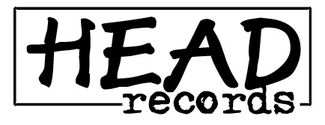“The term “transatlanticism” was coined by Ben Gibbard to define the incomprehensible emotional gap between two lovers separated by comprehensible distances—the continental United States, an entire ocean, or, most likely, just a couple floors in your freshman dorm. In the 10 years since Death Cab For Cutie released their finest record, the title has taken on an unintended resonance in regards to their career. On one side of their fourth of seven studio albums, there are three modestly performed and admirably successful LPs released on Seattle indie label Barsuk. On the other, three exquisite-sounding and wildly successful LPs released on New York City major…Atlantic.
Read More on : https://pitchfork.com/reviews/albums/18656-death-cab-for-cutie-transatlanticism/
Tracklist :
A1 The New Year
A2 Lightness
A3 Title And Registration
B1 Expo ’86
B2 The Sound Of Settling
B3 Tiny Vessels
C1 Transatlanticism
C2 Passenger Seat
D1 Death Of An Interior Decorator
D2 We Looked Like Giants
D3 A Lack Of Color
| Weight | 550 g |
|---|---|
| Format | LP |
| Style | Rock/Indie/Garage |

